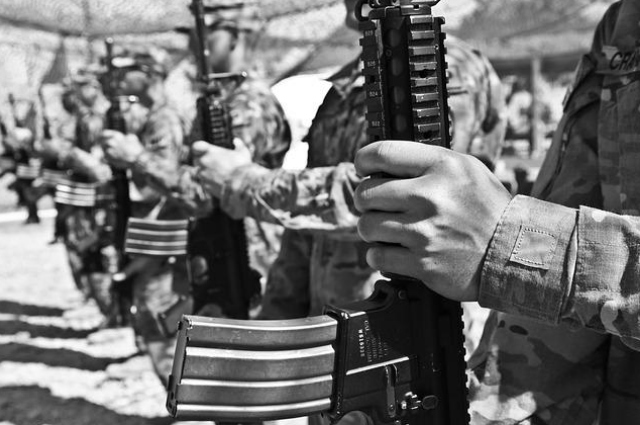
To quote Alexandria Ocasio-Cortez “For all those who lost, sacrificed, suffered and served in the last twenty years of war and occupation, the United States has a singular responsibility in extending safe refuge to the Afghan people.”
I believe that the United States has a moral obligation to admit as many Afghan refugees as possible.” Much like the American democracy, my debate stands on three pillars. The difference between my debate and American democracy, however, is the fact that one has some credibility and soundness.
The three pillars of my debate are the Afghan citizens’ right to asylum, the precedence of providing refuge in the United States, and America’s role in the sociopolitical predicament of Afghanistan.
Before delving into the arguments, however, certain contextualization is undoubtedly required.
The Taliban is a religiopolitical militant organization that had been in power in Afghanistan since the late 1990s. The US military invaded Afghanistan in 2001, vowing to instill democracy and oppose terrorism. Currently, the Taliban controls the functioning of the Afghan government and thousands of citizens are striving to flee the country out of fear.
Before addressing the factors of the prevailing situation in Afghanistan, however, I will be starting with my first argument. Article fourteen of the United Nation’s Universal Declaration of Human Rights grants the right to seek and enjoy asylum to every human being. As of now, almost every country in the world is trying to help out Afghan refugees by providing shelter.
Immigration Minister Marco Mendicino says “The situation in Afghanistan is heartbreaking and our country will not stand idly by.” One would assume, or rather, hope that this statement was made by the American Immigration Minister. That, unfortunately, is not the case. This was stated by the Canadian Immigration Ministry, which, along with several other countries’ immigration ministries, is working hard to provide refuge to thousands of Afghan citizens fearing for their lives. How can one then claim that the United States is not morally obliged to do the same?
Moving on to my second argument; the precedence of providing refuge in America. This argument aims to prove that providing refuge in the United States is not a phenomenon that is unheard of. Providing refuge is not going to open a Pandora’s Box of chaos and uncertainty in the country. After the fall of Saigon in 1975, the United States took in more than a hundred thousand Vietnamese refugees in less than a year. Renowned historian Phuong Tran Nguyen rightly says “There was a sense that the United States had a moral obligation to help out Vietnamese people after failing them during the Cold War.” The Vietnamese and Afghan situations have evident similarities. What tangible proof can the one then present to claim that the Afghan refugees don’t deserve the same treatment the Vietnamese did?
My final argument will analyze America’s role in the sociopolitical predicament of Afghanistan. The last twenty years in Afghanistan showed blood and tears (mainly of the Afghan citizens). The American government and military are not known for their empathy. However, America’s unwelcome visit also resulted in thousands of American deaths, as well as a loss of trillions of dollars. This compelled the United States to start peace talks with the Taliban, and a decision to pull the troops out was taken. This gave a green signal to the Taliban. Currently, the militant organization has absolute power over the country and the rights and livelihood of the Afghan citizens are under threat.
Ali Noorani, Executive Director of the National Immigration Forum, states “Once the Biden administration announced the withdrawal of US troops from Afghanistan, it was not hard to predict the collapse of the nation. What is astonishing is the utter lack of planning by the administration to develop and execute a plan to protect the lives of tens of thousands of Afghan nationals who worked with our military. Men, women, and children whose only crime was to help our troops will be killed as a result.”
Though Noorani limits his advocacy to only certain refugees, his argument is valid for all Afghans. The United States showed sheer selfishness when it decided to pull out troops in February 2020. To save their troops and dollar bills, the United States knowingly risked the lives of millions of Afghan citizens. To counter a mistake they made twenty years ago which resulted in war and turmoil, the United States made a mistake yet again that will further result in war and turmoil. The least it can do is provide refuge to the innocent Afghans.
Before concluding, I would like to stress the fact that I am specifically talking about the United States’ moral obligation. One will counter my arguments by citing problems with the economic feasibility of legal practicality. However, this is not a debate about pragmatism, but about the admission of moral obligation. My arguments are not an appeal to the Government of the United States, but an appeal to the readers. I am not claiming that refuge should be provided without any thought. I am urging the readers to hold the United States accountable for its actions.
I recognize the Afghan refugees’ right to asylum, I recognize the history of refuge provided in the United States and I recognize the mistakes of the United States that it needs to atone for. Therefore, I am proud to propose this argument.
